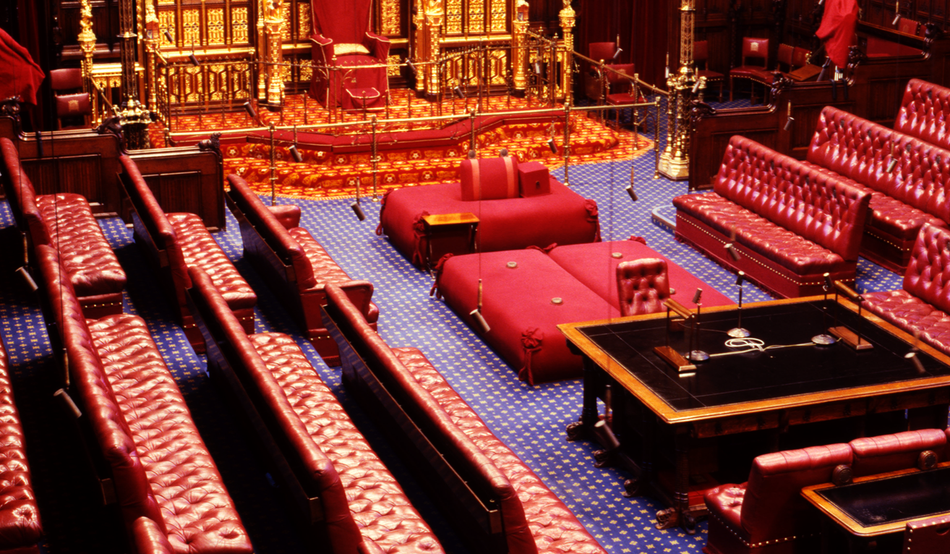A slow moving but significant drama is playing out in the House of Lords. The peers are in the process of blocking the Assisted Dying Bill, which would allow the terminally ill to end their lives by a regulated procedure, as is now permitted in many other countries.
The blocking is not yet complete, and it could be thwarted if there is sufficient controversy. But if the legislation is blocked, it will put radical House of Lords reform on the agenda, far beyond the removal of the remaining 92 hereditary peers.
The Assisted Dying Bill arouses strong passions for and against, but it is undeniably the clear and considered will of the elected House of Commons. The legislation was debated by MPs for more than 100 hours, with a deciding majority of 23 in the final vote to authorise it—a vote in which 605 members participated, which is a record for a non-government private member’s bill.
That was in June. In the five months since, the peers have spent more than 20 hours debating the bill, but it has made hardly any progress. Even more time, another 20 hours or so, has been spent in deliberations by an evidence-taking select committee, largely replicating similar hearings held by the Commons committee which originally considered the legislation. More than a thousand amendments have been tabled, a near record for any legislation in parliamentary history. Only 20 or so have yet been debated, and the bill is on course to expire through lack of Lords debating time in the current parliamentary session. To be revived, it would then have to start the whole process from scratch in the Commons.
Assisted dying raises contentious issues: the role of doctors, the nature of consent, the avoidance of coercion and so on. A revising chamber is needed to consider detailed improvements—but that’s true of all controversial bills. That isn’t the dynamic now at play, which instead seems like a straightforward bid to stop the bill altogether.
There is a large majority against assisted dying in the Lords. There hasn’t been a direct vote, because outright rejection of the bill was thought to be an unwise provocation by its opponents. But some two-thirds of peers who spoke on the bill’s introduction were opposed, including most of the Tories, who are by far the largest party in the Lords after 14 years of Tory appointments. What is now taking place looks like an elaborate filibuster. A hard core of opponents are hoping that this will be tolerated by the large anti-bill majority in the Lords, while the Commons majority led by Starmer is too weak to intervene.
If the bill fails in the Lords, there will be an inconclusive argument about constitutionality. Opponents of the Assisted Dying Bill will argue that that the so-called Salisbury convention—which ensures that the unelected Lords does not seek to block major government bills passed by the elected Commons—only applies to legislation which features in the governing party’s manifesto.
However, it has been many decades since the Lords overturned a major bill passed by the Commons, government bill or not, regardless of whether it was in the manifesto. If the peers are emboldened enough to do so on this occasion, it will be a straightforward assertion of power in the face of what they judge to be a weak House of Commons, despite its huge nominal Labour majority. This will inevitably raise questions about the legitimacy of a nominated chamber and what they might do next.
The big question is whether an emboldened House of Lords will start to challenge governments head on. The present government, in common with all governments since the removal of most of the hereditary peers in 1999, lacks an overall majority in the Lords, which also has many independent peers. Ministers constantly have to deal with Lords amendments to their legislation, many of them fairly fundamental. Sometimes they accept Lords amendments (particularly when their majority in the Commons is shaky). Very occasionally, the Commons has voted to support a Lords amendment against the government whip.
However, governments—including the present one—routinely use their Commons majority to reject Lords amendments. The peers then back down, no matter how weak they might view the government to be. To do otherwise involves a straightforward assertion that the unelected Lords is more legitimate than the elected Commons: the same issue may be raised on the Assisted Dying Bill.
Ironically, it may not be Labour which has most at stake here. If Reform wins the next election, it will take office with very few supporters in the upper house and a manifesto calculated to enrage the peers. Just think what today’s peers, of all parties and none, would make of abolishing the Human Rights Act, the mass deportations of migrants and maybe even a referendum on capital punishment. I suspect Nigel Farage would be happy to see a battle royal between the present government and the peers. For him, it probably can’t come soon enough.













